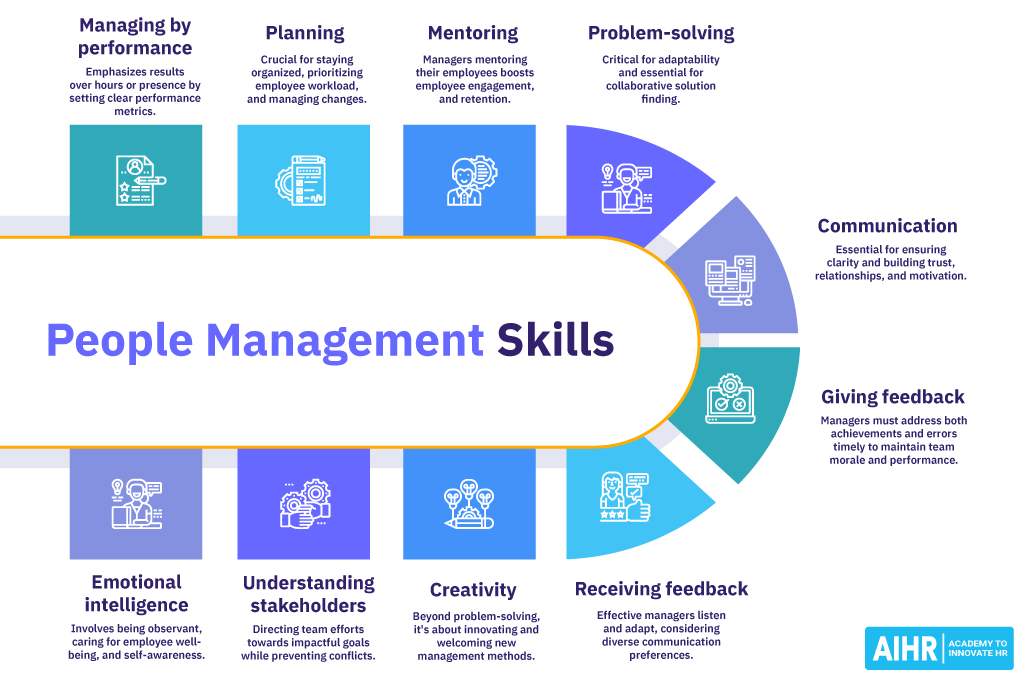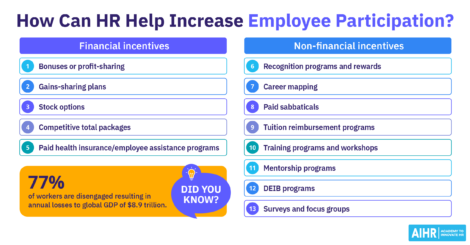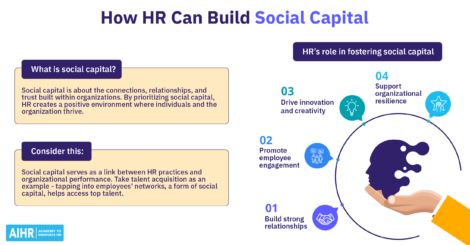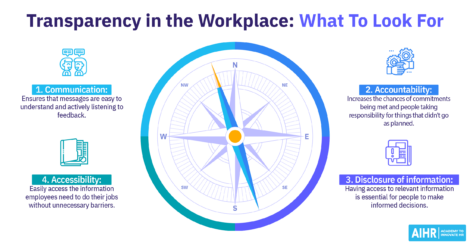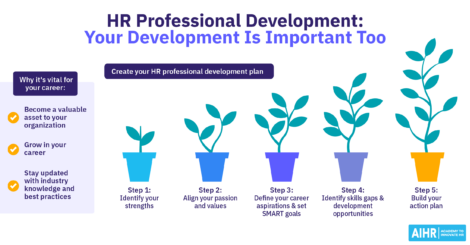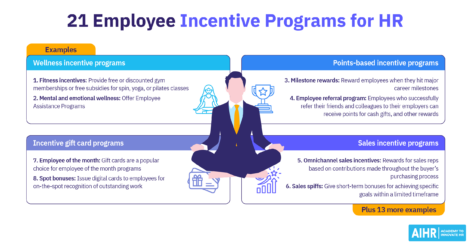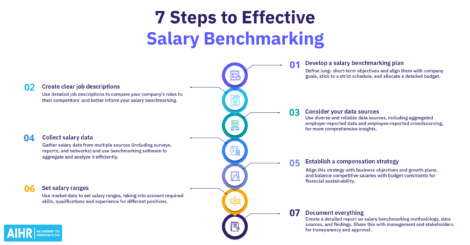People Management: All You Need To Know + 10 Top Skills

Mastering effective people management is essential to retain employees, maintain productivity and engagement and boost business performance. Yet, 50% of employees have quit a job to get away from their manager, and 69% of managers often feel uncomfortable communicating with their employees and giving feedback on performance. This suggests that people management in organizations is often lacking.
Let’s explore what people management is and why it matters, the challenges of people management, and the top people management skills that matter for both people managers and HR professionals.
Contents
What is people management?
The importance of people management
People management challenges
Key components of an impactful people management strategy
10 top people management skills
FAQ
What is people management?
People management centers on leading, training, developing, motivating, and day-to-day management of employees to support the overall goals and mission of the organization. People management responsibilities encompass all people-related tasks, including recruitment, onboarding, training and development, performance management, employee engagement, and compensation and benefits.
Usually, line managers are responsible for people management in their departments, with the HR department providing guidance and assistance. HR professionals work alongside team managers to help provide feedback and leadership to employees to enable them to work cohesively with the team and meet their career goals.
The importance of people management
People are the heart of every organization, which is why effective people management is so important. Here are some of the ways that strong people management skills can benefit your employees and your organization.
- Retaining employees – As we’ve already mentioned, statistics show that people don’t leave a company or a job; they leave a poor manager. The reverse of this is that people always remember a truly great manager who was easy to work with, helped them reach their goals, and genuinely valued them. Effective people managers will help you increase your chances of retaining top talent.
- Stimulating productivity, engagement, and performance – When employees feel valued and cared for, are recognized and rewarded for good work, and understand the role they play within the organization and how to progress in their career, they are much more likely to be engaged at work and perform at their best.
- Creating a positive and supportive workplace environment – Effective people management leads to employees who feel supported, who are then more likely to be happy, engaged, and have a positive attitude at work. That contributes to a positive workplace atmosphere for everyone.
- Conflict resolution – People management skills enable managers and HR to have open and direct conversations with employees. Team managers and HR professionals can navigate conflict and address any issues sooner rather than later to reduce dysfunctional conflict at work.
- Skills development – Good managers help employees develop in their careers and gain the skills and confidence they need to meet their personal and professional goals, which also benefit the organization.
- More effective collaboration – Leaders with strong people management skills are better able to manage their teams, meet objectives, and foster an engaged and collaborative team environment.
- Boosting business performance – The ultimate goal of people management is to meet the goals and mission of the organization. When people are managed effectively, they are better equipped to succeed in their role and contribute to these goals.
People management challenges
People management presents managers and HR with a unique set of challenges, the primary one being the conflict between advocating for employees while simultaneously striving to meet business objectives. Let’s explore some of the common challenges in more detail.
- Lack of people management skills – One of the main challenges in people management is a lack of skills and knowledge in how to nurture and champion people and bring out the best in them at work. Often, managers desire stronger relationships with their team but lack the skills needed.
- Lack of consistency and transparency in managing people – People managers often struggle to be consistent because they don’t have a clear set of guidelines to follow. That results in a lack of consistency in managing people. There’s also a lack of knowing how to effectively deal with conflict and address poor performance. For this reason, many managers skirt the issue and are not open and honest with their employees.
- Communication issues – There’s a natural distance between managers and their teams, but if they don’t craft the skills to bridge this gap, it will result in poor communication. Employees will feel like they aren’t listened to or valued. This can have a negative effect on team morale as well as business operations. Employees need to have an open line of communication with their managers, know what is expected of them, and be kept up on their progress and any changes occurring in the business that affect them.
- Balancing team and individual needs – Another challenge of people management is being able to balance the needs of each employee as well as the whole team and the wider business. Every employee will have slightly different goals, communication styles, personalities, and ways of working. Successful managers are able to connect with people from a wide variety of backgrounds and meet their needs while empowering them to play a larger role in the goals of the organization.
- Managing change – Employees are often the last people to find out when someone is leaving the company for a new role, being made redundant, moving teams, being promoted, a new employee is joining the team, or a new department is being created. At the same time, managers may not know the full story and may also be kept in the dark until the department heads or business leaders have made the final decision. But when managers withhold this information from their team, it leads to mistrust and confusion.
Key components of an impactful people management strategy
There are 5 Cs that form the base of effective people management strategies. These are Clarity, Context, Consistency, Courage, and Commitment.
Let’s explore each of these in more detail and how they can help you address the challenges and achieve desired results in your people management strategy.
Clarity
People management is about being able to give people clear instructions so that they understand what they need to do, how to do it, and why it matters. Poor communication leads to a lack of clarity, having a negative effect on the manager-employee relationship. What’s more, it contributes to disengagement.
When employees know what is expected of them and how their role contributes to the bigger goals of the organization, they are more likely to be engaged and productive at work. This helps to retain employees and stimulate performance.
Context
When managing people, all situations and circumstances should be looked at in the context of the bigger picture. For example, if one of your top employees suddenly seems disengaged at work and is missing deadlines, rather than issuing a formal warning, or worse, demoting them, a manager with strong people management skills would sit down in private with them and ask them if everything is okay, or if they need any help with anything.
Another example is in the case of someone moving teams or a new employee joining the team. A manager who understands the nuance of context may decide to share this news early on with the people who it directly affects and then a little later with people who are not directly affected day-to-day by this change.
Context is also critical when conducting an investigation, for instance, as a part of a grievance procedure. Nothing happens in a vacuum, and a fair investigation looks both at the context of the situation and the content.
Consistency
Besides resolving workplace conflict and other issues, there are other circumstances where consistency is essential. For example, performance appraisals should happen regularly and on time and follow the same procedure. All employees should be given equitable opportunities to learn, develop, and progress in their career.
Consistency in people processes helps mitigate feelings of bias or favoritism, boosts employee morale, and promotes a transparent work environment.
Courage
It can be challenging to sit down with an employee and tell them they need to make some changes. It can feel awkward and uncomfortable to let someone know their behavior is inappropriate. People managers who lack adequate training and skills often fear these conversations.
People managers must also decide who to promote, who to rate “fails to meet expectations,” and sometimes terminate an employee for poor performance. While it may seem kind to ignore employees’ faults and failings, HR and managers have a responsibility towards the company and the other employees. The courage to do what is right is critical in any effective people management strategy.
Commitment
Good management doesn’t happen overnight. It takes hard work and patience and requires training and mentoring. Being committed to managing people effectively is a never-ending process that begins during the hiring process and only ends after an employee has exited the company.
Commitment to both employees and the organization’s mission is essential in building an engaged, collaborative team and a positive work environment where everyone plays their role in achieving key goals.
10 top people management skills
Line managers need to develop people management skills to effectively lead their teams. These skills are also essential for HR professionals to be able to become subject matter experts on people management and guide their organization’s managers.
Here are the most important people management skills (in no particular order):
1. Managing by performance
Management by performance means focusing on output and outcome. In other words, it emphasizes the results achieved rather than the hours worked or physical presence in an office. What does that mean in practice?
During the pandemic, everyone who could began to work at home. That forced managers to learn how to judge performance not by face-to-face interactions and contact time but by the employee’s results.
It’s imperative for HR and managers to collaboratively set clear performance metrics with employees, providing a transparent framework for understanding achievements and areas for growth. That ultimately empowers individuals to drive their career progression.
2. Planning
It may seem difficult to plan in this rapidly changing landscape, but people management requires managers and HR to plan for multiple contingencies.
Planning is also an important skill in staying organized and ensuring employees are able to navigate and prioritize their workload and manage any structural or operational changes that occur.
3. Mentoring
Most employees want to progress in their careers and will appreciate a manager who takes the time to mentor them and helps them succeed and fulfill their professional goals.
When an employee develops a mentor relationship with their manager (or someone else in the business), it makes them feel valued and increases engagement and retention.
4. Problem-solving
Complex problem-solving is one of the top 10 in-demand skills. The pandemic was an unusual yet monumental example of businesses needing to think outside of the box and solve a variety of unexpected problems. People had to learn how to telecommute, rearrange factory floors, work with masks, and comply with ever-changing government health regulations.
Even in more subdued times, problem-solving is a crucial skill in people management. Not only do you have to solve problems with projects, but you need to work together with employees to find solutions.
5. Communication
Communication skills are essential to good people management. Establishing a direct and open line of communication with all employees is essential to build trust and strong relationships. In such an environment, employees understand their role and are willing to go the extra mile at work to complete projects, make sales, and meet goals.
6. Giving feedback
Good people management requires managers to give feedback – whether it’s a conversation to recognize a job well done or a conversation to address poor performance.
If a manager allows an employee to make the same mistake repeatedly, it can negatively affect the wider business, and other employees may grow frustrated. Yet, 37% of managers are uncomfortable giving direct feedback their team member might respond badly to.
On the other hand, if a manager ignores employees’ successes, employees will feel unappreciated. That often pushes them to look for new opportunities elsewhere. Good team leaders need to provide feedback in an accurate, kind, and timely way.
7. Receiving feedback
Good people management also means being able to actively listen to employees and receive feedback and constructive criticism.
Feedback should always be a two-way street, and being an effective people manager means being open to improving and learning new ways of managing that people respond well to. For example, people from different age groups and people who have different learning styles are likely to value different styles of communication.
8. Creativity
Creativity is about the above-mentioned problem-solving, together with solution-finding, new product development, and feedback facilitating.
Good people managers will continue to find creative solutions to the situations they’re faced with at work. They also won’t be afraid to experiment with new ways of managing people and will be open to new ideas from their employees.
9. Understanding stakeholders
Understanding stakeholders ensures that team efforts are directed toward the most impactful areas. It involves recognizing their roles, influence, and priorities, taking into account the needs and expectations of all parties.
This skill enables managers to ensure that their efforts and those of their employees align with the broader organizational goals. It also helps prevent potential conflicts or misunderstandings.
10. Emotional intelligence
A people manager with emotional intelligence is observant and notices non-verbal cues that others may miss. Strong people management is about prioritizing employee wellness and work-life balance and paying attention to how employees are fairing at work. It’s about reading between the lines and taking a genuine interest in the welfare of people.
Someone with emotional intelligence also knows their own limitations and looks to work on their weaknesses.
Wrapping up
Good people management is crucial for the engagement, retention, and professional development of your employees and is an essential part of a successful talent management strategy.
As Human Resources should be the expert on the people side of the business, they play an important role in providing guidance, direction, and training to those who are busy managing people on a daily basis and, by extension, the success of the business.
FAQ
People management is the process of overseeing the training, development, motivation, and day-to-day management of employees. Typically, line managers are responsible for people management in their departments.
Through these responsibilities, they aim to maximize employee performance, ensure job satisfaction, and align individual goals with the broader objectives of the organization.
People management skills refer to the abilities and application of best practices used to lead, motivate, communicate with, and develop team members to optimize their performance and job satisfaction.
Top people management skills include effective communication, planning, mentoring, problem-solving, giving and receiving constructive feedback, emotional intelligence, and creativity.
Improving people management skills involves a combination of self-awareness, continuous learning, and practical experience.
People managers and HR professionals can begin by seeking feedback about their current management style from peers, superiors, and direct reports to understand areas of strength and improvement. They can engage in leadership training or workshops that address key aspects of people management and building leadership skills, such as effective communication, conflict resolution, and team motivation.
Regularly setting aside time for self-reflection is helpful in identifying personal biases or tendencies that may affect the management style. Additionally, actively seeking mentorship from seasoned leaders can provide invaluable insights into effective people management and hone these essential skills, especially for first-time managers.
Weekly update
Stay up-to-date with the latest news, trends, and resources in HR
Learn more
Related articles
Are you ready for the future of HR?
Learn modern and relevant HR skills, online





